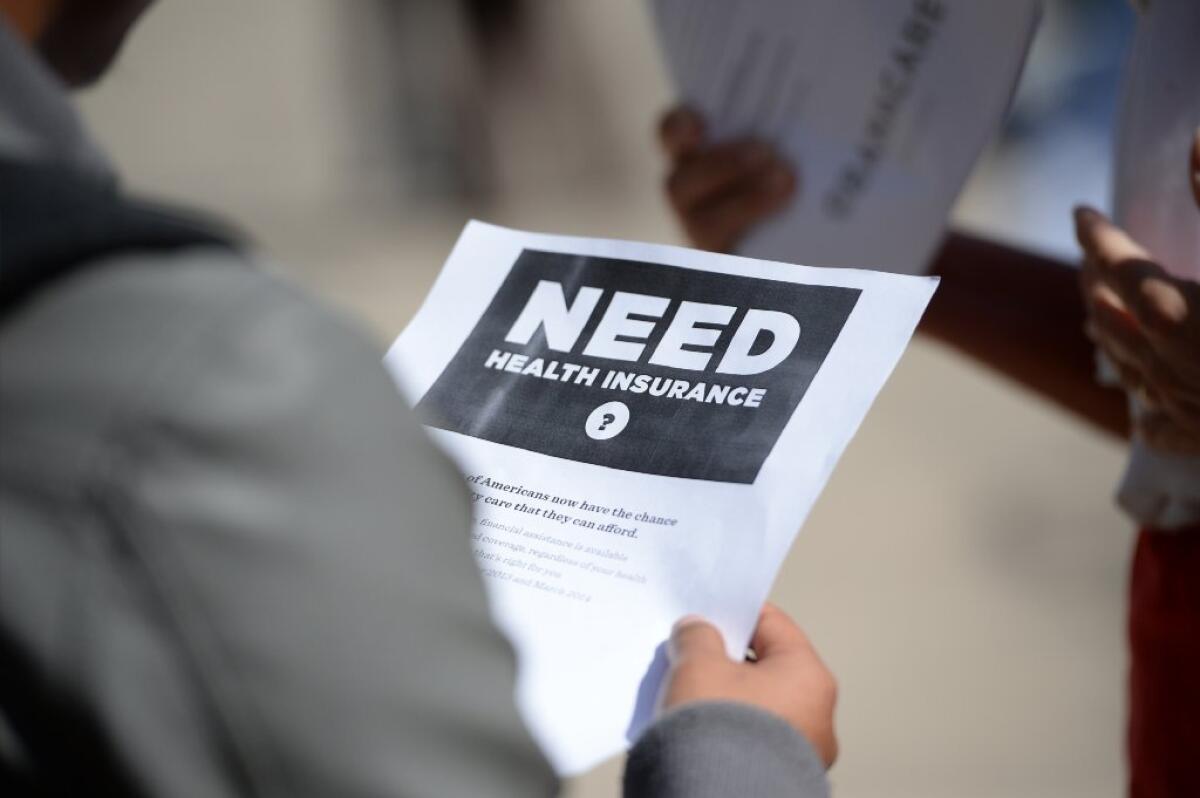Shutdown follies: Congress gets tough on the little guy

- Share via
Today’s watchword on Obamacare is “income verification.” That’s a process that House Republicans, and Senate conferees, appear poised to write into their solutions to resolve the fiscal standoff. It means somehow verifying in real time the income that applicants for insurance list in order to claim a government premium subsidy.
Senate Democrats seem inclined to go along with income verification to reach a fiscal agreement with their Republican counterparts, though the details of what they would agree to are murky. Reports say they’re willing to “tighten” income verification rules, which leaves plenty of latitude. They also indicate that they don’t think verification would burden the Obamacare rollout, so they may just be paying lip service to the idea. We’ll see.
It’s certainly gratifying that Congress has suddenly decided that there should be enforcement of rules governing public disbursements, like subsidies. It’s entirely typical, however, that it’s aiming its firepower at the smallest targets. Over the decades, the pattern has always been that big shots and fat cats skate, while the little guys have to show every penny.
Lawmakers in Washington have systematically hollowed out the enforcement divisions of our most important financial regulators, which of course aim their firepower at big scofflaws.
Earlier this year Gary Gensler, chairman of the Commodity Futures Trading Commission, told a Senate committee that the CFTC’s enforcement staff had grown a princely 10% since the 1990s, while the futures market had grown fivefold and the swaps market, also part of the CFTC’s jurisdiction, was eight times larger than that. Asked whether the CFTC had enough resources, Gensler replied, “No, we absolutely do not.”
Similarly, in February, then-SEC Chairwoman Elisse Walter told Congress that her agency had not been given the resources it needed to carry out its regulatory duties under the Dodd-Frank Act.
The IRS budget is down nearly 20% since 2002, including the impact of the sequester. The agency announced in April that it would have to furlough 89,000 employees, including 1,800 auditors and enforcement agents, for at least five days. Even before the sequester, the agency said it would conduct 18% fewer audits of corporations with more than $10 million in assets this year compared to last year.
Fewer cops on the beat, of course, means more lawbreaking; all these cutbacks are open invitations to speed freaks.
The focus on “income verification” in the Affordable Care Act is especially cynical. It became a Republican shibboleth earlier this year, possibly because its fans knew that implementing such a system fully was practically impossible, as it requires sophisticated computer matching of government income data with applications for subsidies. The rule is part of the act, but the government was not planning to implement it until 2015.
Until then, the government said it would rely on the honor system and voluntary compliance, backed up by subsequent audits. Critics of Obamacare wring their hands over this, as though most of our financial reporting to the government isn’t already based on the honor system. (Or do you get audited by the IRS every year?)
They seem to think that the availability of subsidies will set off a torrent of fraud, because of course it’s worth facing $25,000 in statutory penalties in order to falsify documents to get a few hundred dollars a month in subsidies.
More to Read
Inside the business of entertainment
The Wide Shot brings you news, analysis and insights on everything from streaming wars to production — and what it all means for the future.
You may occasionally receive promotional content from the Los Angeles Times.











